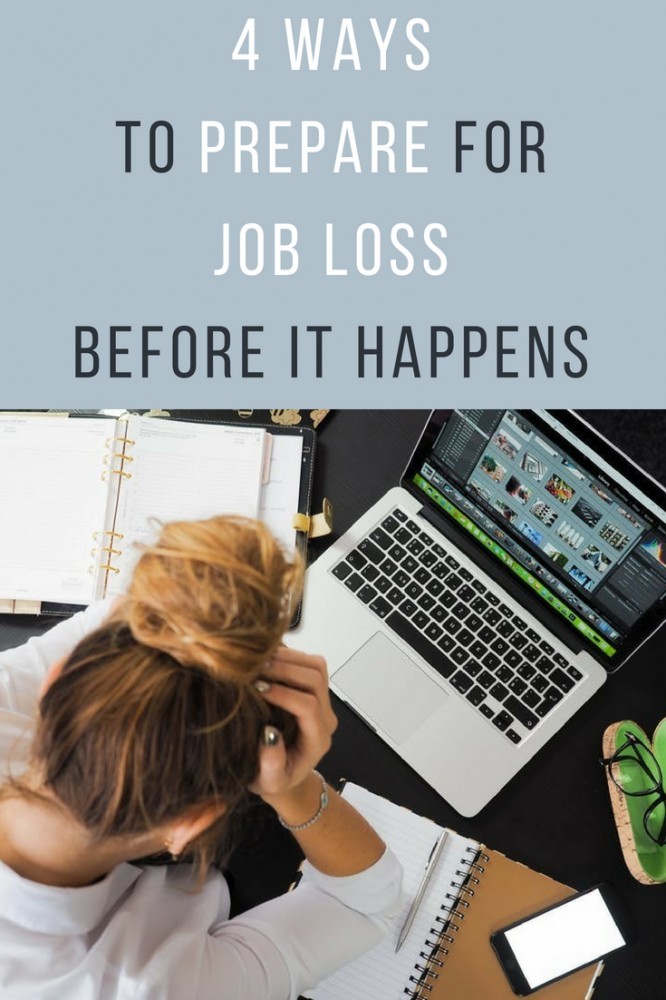How to Prepare for Job Loss
Have you ever found yourself unexpectedly jobless? I’ve been there. The company I was working for closed down just when I was on the highest salary I’d ever earned. It took me way longer than I expected to find another job so I started living on my credit cards. Soon I was using one card to pay another every month. Emotionally I was a mess. Take it from me, it’s worth being prepared for this eventuality. Some great advice in the contributed post below. #HowtoPrepareJobLoss
4 Ways To Prepare For Job Loss Before It Happens
Losing your job is always a scary experience. You don’t know how long it will be until you work again and you’ve only got a finite amount of money to get by on until you can find another job.
If you’re not careful, you can easily land yourself in a lot of financial trouble. But the thing is, it usually doesn’t come without warning. When the company isn’t doing great and a few other people have already been laid off, there’s a chance that you’ll get made redundant as well.
When the threat of job loss is looming, that’s the time to start making preparations. That way, you can be ready if the worst does happen and it’ll be a lot easier to survive until you can find work again. These are the best ways to prepare for redundancy.
 1. Get Your Finances In Order
1. Get Your Finances In Order
If your finances are a mess and then you lose your job, they’re only going to get worse. The first thing you need to do is clear any debts that you’ve got. You don’t want hefty repayments eating into your safety net if you do end up losing your job.
Cut back on spending where you can and put all of that money back into clearing your debts. Once you’re debt free, resist the urge to resume spending as normal.
Instead, continue with your new budget and start putting the extra money into a savings account. The more you can build up now, the easier things will be if you are made redundant.
2. Improve Your Credit Score
This one is tied into clearing your debts. Your score should improve as you pay off your debts but even after that, you need to take steps to build it up again.
You might need to borrow money when you’re out of work and the better your credit score is, the better the interest rate on that loan will be.
Take out an interest-free credit card and use it to make small purchases, and then pay it off right away. That’s the easiest way to start building good credit again.
3. Look At Your Loan Options
Regardless of how much money you’ve saved up, there’s always the chance that you’ll run out before you can find another job and you’ll need to borrow money to make ends meet.
Redundancy is one of the most common reasons for short term cash advance so don’t be surprised if you have to take one out.
But don’t wait until you’re out of money before you start sorting it out. Look into your options now and see who will lend to you. That way, you’ll be prepared when it does happen.
4. Look For Other Funding Sources
Getting a loan is the most obvious way to get extra money when you aren’t working but there are plenty of other options.
You might have some back pay (from a holiday that you didn’t take, for example) that wasn’t included in your redundancy package so always make inquiries about that.
You might also be eligible for some government assistance while you’re out of a job so look into that as well.
If you make these preparations before you lose your job, you’ll find it a lot easier to get by without ending up in financial trouble.
Do you feel prepared should you ever find yourself out of work?


